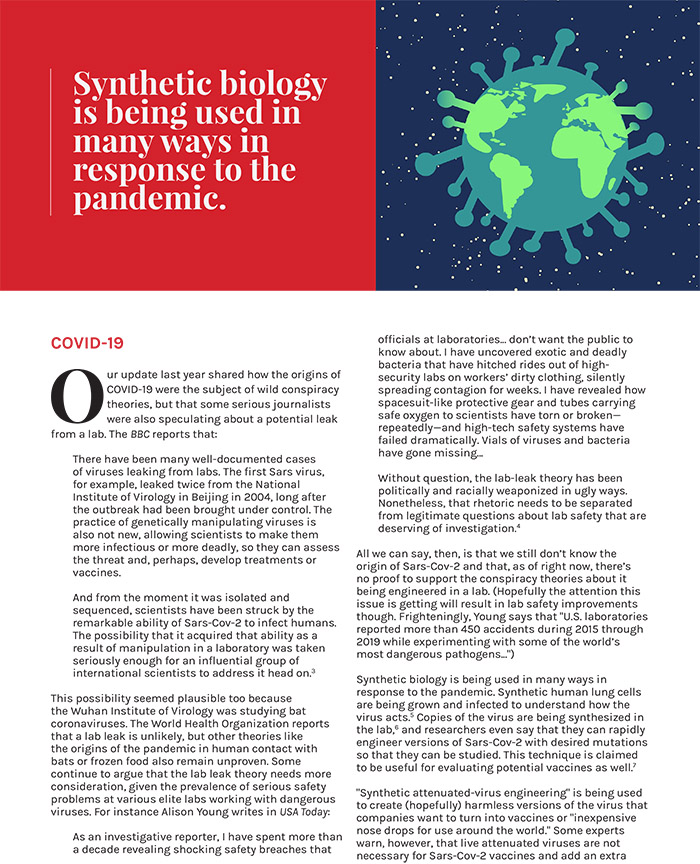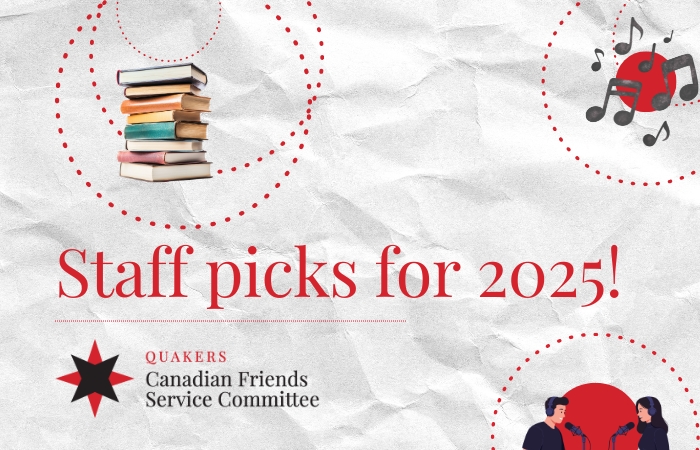
Open letter: No IHRA definition in Canada’s online hate legislation
April 7, 2021Synthetic Biology
May 4, 2021Our 2021 synthetic biology update (PDF) is here! It’s happening right now. Many scientists, technology-enthusiasts, and corporations hope to create novel life forms. They seek to move from evolution through natural selection into a moment of ever more human-designed life.
Combining life sciences, computer science, and engineering, a field sometimes called “synthetic biology” is developing. It uses a suite of powerful techniques with names like “CRISPR.”
As with other new technologies, there’s a lot of hype, many promises, and many perils. Governments have failed to keep pace. The public doesn’t provide input into the far-reaching decisions companies make. There’s limited regulation.
Canadian Friends Service Committee is the peace and social justice agency of Quakers in Canada. Grounded in our values of peace, integrity, equality, simplicity, and respect for all creation, we are led to pay attention to synthetic biology.
We are particularly interested in the social, ethical, and spiritual implications—both beneficial and harmful—which go well beyond the technology itself. See an overview of our hopes and worries at https://quakerservice.ca/SBIssues
Once a year since 2014 we’ve provided simple informational updates about some of the applications of synthetic biology that are making headlines. These updates are aimed at a general audience with no science background.
In our 2021 update you’ll find:
- The state of knowledge about the origins of COVID-19
- The many ways that synthetic biology is being used in response to the pandemic.
- Proposals to vaccinate wild animals.
- Research on editing entire populations of animals and insects in the wild.
- Bioweapons.
- Gene editing humans, and human-animal chimeras.
- Companies that say they’re using synthetic biology and AI to develop novel drugs for mental health.
- Attempts to edit the bacteria living on soldiers’ skin.
- Stem cells that lactate “breast milk.”
- Using AI to predict climate change’s impacts on environments and to engineer novel plants and animals that are adapted to these changed environments.
- A study of a small number of wild plants that for the first time may show an escaped transgene having unintentionally altered a wild ecosystem.
- Pesticides that alter insects’ genes, killing them.
- Scientists encoding the longest phrase yet directly from a computer into the cells of a living bacteria.
Read the 2021 Synthetic Biology Update (PDF).
Find out more about synthetic biology.





